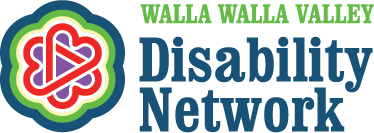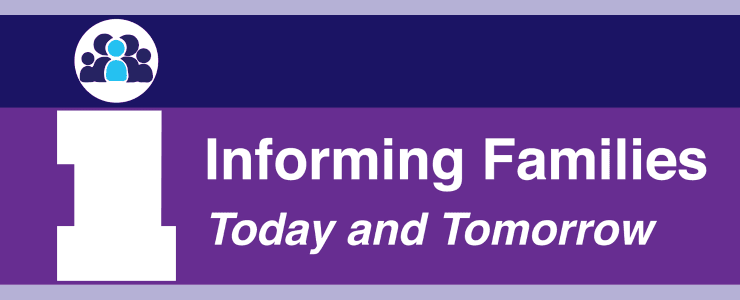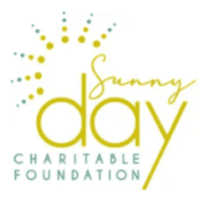Walla Walla Valley Disability Network does not endorse or recommend any particular products, treatments, services or diagnosis, whether specifically or generally, and professional advice should be sought in relation to all health and treatment decisions. We provide information and listings only which we hope are helpful.
Preparing for a Job
-
Applying for a job with a chronic illness, disability or impairment? Read our tips for creating a CV and a cover letter, and for the job interview here.
-
The ChoiceMaker Curriculum consists of three strands: (1) Choosing Goals, (2) Expressing Goals, and (3) Taking Action. Each strand addresses teaching objectives in three transition areas: Education, Employment, and Personal.
-
Print this form and fill it out if your student is between age 14 and 21, has an IEP or 504 plan or has a disability with no IEP or 504, and would like to receive pre-employment transition services. This must be signed by a school official and returned to DVR.
-
Come learn about the Job Foundation program and help increase employment outcomes for young adults with intellectual and developmental disabilities in your community.
-
Lessons for Teaching Self-Awareness & Self-Advocacy
-
The bell ringers focus on the areas of self-awareness, disability awareness, goal setting, and students gaining the knowledge to lead their IEPs. There are two versions of the bell ringers, one for secondary students and one for elementary age students or secondary students working on alternate achievement standards.
-
What do you want to do for a living?
-
Megan Hansen
(509) 386-6912I have a program from 1:00 to 5:00 Monday through Thursday (for young adults up into adulthood) with an emphasis on work skills. This program will run for three months, when at that time, we will put the skills learned into action. We will launch businesses fully run by the participants. Bringing skills learned to fruition brings a huge sense of accomplishment, especially when each person is able to contribute to their own life. This program begins August 1 and will run this way through October 31. At that time we will integrate the skills learned into small business opportunities individualized to each person. This is all done in a safe, nurturing environment where lifelong connections are made. Cost of this program is $300 per month. Transportation both to and from will be provided.
We also have an evening program for young adults up into adulthood. This is offered Monday and Wednesday evenings from 5:30 p.m. to 8:30 p.m. We will focus on social activities and interactions, lifeskills, making connections and having fun! On Mondays we will plan Wednesday's meal, budget, and grocery shop. Dinner will be provided each night. Transportation both ways for both nights is provided. Cost of this program is $225 per month.
-
The eight Student-Directed Transition Planning (SDTP) lessons facilitate high school to adult life planning partnerships between students, their families, and educators.
-
Find the education & training you need to get the job you want. Explore careers, view job trends, find education.
Employment
-
Mission: To support people who have a developmental disability in achieving greater independence and fulfillment on their pathway to employment.
-
A not for profit community-based employment and social support organization dedicated to meeting the needs of adults with disabilities in integrated social and work environments, and assisting individuals in achieving and maintaining maximum independence in their daily activities.
-
DVR believes employment contributes to a person’s ability to live independently and everyone has a right to work. Our purpose is to empower people with disabilities to achieve a greater quality of life by obtaining and maintaining employment.
-
Putting your abilities to work - If you or a loved one has a disability, you can benefit from our customized services that help individuals live, work and thrive within their communities. We’re committed to helping people make the most of their abilities and connect with opportunities that allow them to move beyond a job and into a career.
-
LRC is dedicated to providing employment and support services to individuals with developmental disabilities while enhancing their quality of independence. Check out their programs in the drop down menu.
-
Promoting Community Inclusion - Through work training services, Alicia Walker provides meaningful employment and training to people with developmental disabilities in Walla Walla and Columbia County.
-
Opportunity Services
For information, please contact James Howerton, email: james.howerton@gmail.com
-
Do you live in Oregon or Washington’s southern counties of Benton, Clark, Cowlitz, Franklin, Klickitat, Lewis, Pacific, Skamania, Wahkiakum, and Walla Walla? Our goal is to enable SSDI or SSI beneficiaries to make informed decisions about work and to support them in making a successful transition to greater financial independence.
-
Look for this inclusion sticker on local business doors and windows. This indicates the business: employs a person with a disability, participates in a trial job experience, and/or participates in job tours or job shadowing.
-
Social Security’s work incentives and Ticket to Work programs can help you if you’re interested in working. Special rules make it possible for people receiving Social Security disability benefits or Supplemental Security Income (SSI) to work and still receive monthly payments.
-
There are significant financial benefits to offering an inclusive apprenticeship program and hiring people with disabilities as apprentices. Apprenticeship intermediaries are eligible for incentives to support their programs and reduce costs, and, in turn, employers who make inclusion a priority and actively recruit and hire apprenticeship graduates (especially those with disabilities) can save time and money throughout all stages of the employment process.
Employment Videos Featuring Local People
Finances
-
We’ve spent years learning the ins and outs of the Social Security system and how it affects people who experience DD/ID. We know it can be very confusing, which is why we’re here to help! We have a network of Benefits Planners that can help you get the answers you need, at NO COST to you.
For more information, please see this pdf file:
https://www.wwvdn.org/file_download/b683f0b2-92e3-4ec7-85e4-198154933c40 -
ABLE Accounts are tax-advantaged savings accounts for individuals with disabilities and their families that will largely not affect their eligibility for SSI, Medicaid, and other public benefits. Watch this video: https://www.youtube.com/watch?v=BTP_a3kpOGs for an overview of ABLE accounts.
En español: https://www.youtube.com/watch?v=ujJXnJ_c3Ek&list=PL9ehQ7w4Tze0NnbQhmLPMhV2xmF2zpZfV&index=2
-
A Washington State ABLE Savings Plan allows people with eligible disabilities to save for their everyday needs, invest in a tax-free account and prepare for the future without losing their state or federal benefits.
-
DDETF allows individuals with developmental disabilities, or their families, to set aside funds for future use without affecting their eligibility for government services and benefits, such as Supplemental Security Income (SSI) and Medicaid.
-
Which one is the best for me?
En Español: https://www.wwvdn.org/file_download/1ba1bcee-c39e-4013-825e-f995847edadf -
Everyone must plan for how they will pay for the things they want and need in their life, and it’s important to plan before you need it. You don't need a lot of money to plan—but you do need to plan! The Arc's Center for Future Planning has created free resources to help.
-
Have you ever had someone ask you to: lend them money without paying it back? buy something that you didn’t want? let them use your debit or food benefit card? sign a blank check?
-
Having troubles with credit? Trying to save? Want to learn more about budgeting? Northwest Access Fund is pleased to offer FREE one-on-one financial coaching for people with disabilities in Washington and Oregon!
-
Apply for SSI at your local office or online.
-
Overview of what an estate is, wills, beneficiary designation forms, special needs trusts (private and pooled), and ABLE accounts and how to insure a person with special needs is financially cared for without losing their benefits.
-
Individuals and families may receive up to $1,200 back if they meet certain eligibility requirements. Apply now through Dec. 31, 2023.








